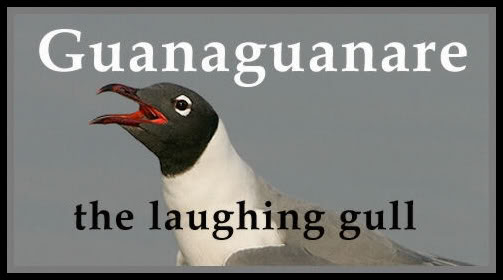Hinduism contains numerous references to the worship of the divine in nature in its sacred texts. Millions of Hindus recite Sanskrit mantras daily to revere the earth.
By Dr. Pankaj Jain, November 10, 2010 | Patheos Hindu: Having the conversation on faith.
"Hinduism contains numerous references to the worship of the divine in nature in its Vedas, Upanishads, Puranas, Sutras, and its other sacred texts. Millions of Hindus recite Sanskrit mantras daily to revere their rivers, mountains, trees, animals, and the earth. Although the Chipko (tree-hugging) Movement is the most widely known example of Hindu environmental leadership, there are examples of Hindu action for the environment that are centuries old.
Hinduism is a remarkably diverse religious and cultural phenomenon, with many local and regional manifestations. Within this universe of beliefs, several important themes emerge. The diverse theologies of Hinduism suggest that:
The earth can be seen as a manifestation of the goddess, and must be treated with respect.
The five elements -- space, air, fire, water, and earth -- are the foundation of an interconnected web of life.
Dharma -- often translated as “duty” -- can be reinterpreted to include our responsibility to care for the earth.
Simple living is a model for the development of sustainable economies.
Our treatment of nature directly affects our karma.
Gandhi exemplified many of these teachings, and his example continues to inspire contemporary social, religious, and environmental leaders in their efforts to protect the planet.
The following are ten important Hindu teachings on the environment:
1) Pancha Mahabhutas (the five great elements) create a web of life that is shown forth in the structure and interconnectedness of the cosmos and the human body. Hinduism teaches that the five great elements (space, air, fire, water, and earth) that constitute the environment are all derived from prakriti, the primal energy. Each of these elements has its own life and form; together the elements are interconnected and interdependent. The Upanishads explains the interdependence of these elements in relation to Brahman, the supreme reality, from which they arise: “From Brahman arises space, from space arises air, from air arises fire, from fire arises water, and from water arises earth.”
Hinduism recognizes that the human body is composed of and related to these five elements, and connects each of the elements to one of the five senses. The human nose is related to earth, tongue to water, eyes to fire, skin to air, and ears to space. This bond between our senses and the elements is the foundation of our human relationship with the natural world. For Hinduism, nature and the environment are not outside us, not alien or hostile to us. They are an inseparable part of our existence, and they constitute our very bodies.
2) Ishavasyam (divinity) is omnipresent and takes infinite forms. Hindu texts such as the Bhagavad Gita (7.19, 13.13) and the Bhagavad Purana (2.2.41, 2.2.45), contain many references to the omnipresence of the Supreme divinity -- including its presence throughout and within nature. Hindus worship and accept the presence of God in nature. For example, many Hindus think of India’s mighty rivers -- such as the Ganges -- as goddesses. In the Mahabharata, it is noted that the universe and every object in it has been created as an abode of the Supreme God meant for the benefit of all, implying that individual species should enjoy their role within a larger system, in relationship with other species.
3) Protecting the environment is part of Dharma. Dharma, one of the most important Hindu concepts, has been translated into English as duty, virtue, cosmic order, and religion. In Hinduism, protecting the environment is an important expression of dharma.
In past centuries, Indian communities, like other traditional communities, did not have an understanding of “the environment” as separate from the other spheres of activity in their lives. A number of rural Hindu communities such as the Bishnois, Bhils, and Swadhyaya have maintained strong communal practices to protect local ecosystems such as forests and water sources. These communities carry out these conservation-oriented practices not as “environmental” acts but rather as expressions of dharma. When Bishnois are protecting animals and trees, when Swadhyayis are building Vrikshamandiras (tree temples) and Nirmal Nirs (water harvesting sites), and when Bhils are practicing their rituals in sacred groves, they are simply expressing their reverence for creation according to Hindu teachings, not “restoring the environment.” These traditional Indian groups do not see religion, ecology, and ethics as separate arenas of life. Instead, they understand it to be part of their dharma to treat creation with respect.
4) Our environmental actions affect our Karma. Karma, a central Hindu teaching, holds that each of our actions creates consequences -- good and bad -- that constitute our karma and determine our future fate, including the place we will assume when we are reincarnated in our next life. Moral behavior creates good karma, and our behavior toward the environment has karmic consequences. Because we have free choice, even though we may have harmed the environment in the past, we can choose to protect the environment in the future, replacing environmentally destructive karmic patterns with good ones.
5) The earth -- Devi -- is a goddess and our mother and deserves our devotion and protection. Many Hindu rituals recognize that human beings benefit from the earth, and offer gratitude and protection in response. Many Hindus touch the floor before getting out of bed every morning and ask Devi to forgive them for trampling on her body. Millions of Hindus create kolams daily -- artwork consisting of bits of rice or other food placed at their doorways in the morning. These kolams express Hindus’ desire to offer sustenance to the earth, just as the earth sustains them. The Chipko movement -- made famous by Chipko women’s commitment to “hugging” trees in their community to protect them from clear-cutting by outside interests -- represents a similar devotion to the earth.
6) Hinduism’s tantric and yogic traditions affirm the sacredness of material reality and contain teachings and practices to unite people with divine energy. Hinduism’s Tantric tradition teaches that the entire universe is the manifestation of divine energy. Yoga -- derived from the Sanskrit word meaning “to yoke” or “to unite” -- refers to a series of mental and physical practices designed to connect the individual with this divine energy. Both of these traditions affirm that all phenomena, objects, and individuals are expressions of the divine. And because these traditions both envision the earth as a Goddess, contemporary Hindu teachers have used these teachings to demonstrate the wrongness of the exploitation of the environment, women, and indigenous peoples.
7) Belief in reincarnation supports a sense of interconnectedness of all creation. Hindus believe in the cycle of rebirth, wherein every being travels through millions of cycles of birth and rebirth in different forms, depending on their karma from previous lives. So, a person may be reincarnated as a person, animal, bird, or another part of the wider community of life. Because of this, and because all people are understood to pass through many lives on their pathway to ultimate liberation, reincarnation creates a sense of solidarity between people and all living things. Through belief in reincarnation, Hinduism teaches that all species and all parts of the earth are part of an extended network of relationships connected over the millennia, with each part of this network deserving respect and reverence.
8) Ahimsa (nonviolence) is the greatest Dharma. Ahimsa to the earth improves one’s karma. For observant Hindus, hurting or harming another being damages one’s karma and obstructs advancement toward moksha -- liberation. To prevent the further accrual of bad karma, Hindus are instructed to avoid activities associated with violence and to follow a vegetarian diet. Based on this doctrine of ahimsa, many observant Hindus oppose the institutionalized breeding and killing of animals, birds, and fish for human consumption.
9) Sanyasa (asceticism) represents a path to liberation and is good for the earth. Hinduism teaches that asceticism -- restraint in consumption and simplicity in living -- represents a pathway toward moksha (liberation) that treats the earth with respect. A well-known Hindu teaching --Tain tyakten bhunjitha -- has been translated, “Take what you need for your sustenance without a sense of entitlement or ownership.”
One of the most prominent Hindu environmental leaders, Sunderlal Bahuguna, inspired many Hindus by his ascetic lifestyle. His repeated fasts and strenuous foot marches, undertaken to support and spread the message of the Chipko, distinguished him as a notable ascetic in our own time. In his capacity for suffering and his spirit of self-sacrifice, Hindus saw a living example of the renunciation of worldly ambition exhorted by Hindu scriptures.
10) Gandhi is a role model for simple living. Gandhi’s entire life can be seen as an ecological treatise. This is one life in which every minute act, emotion, or thought functioned much like an ecosystem: his small meals of nuts and fruits, his morning ablutions and everyday bodily practices, his periodic observances of silence, his morning walks, his cultivation of the small as much as of the big, his spinning wheel, his abhorrence of waste, his resorting to basic Hindu and Jain values of truth, nonviolence, celibacy, and fasting. The moralists, nonviolent activists, feminists, journalists, social reformers, trade union leaders, peasants, prohibitionists, nature-cure lovers, renouncers, and environmentalists all take their inspirations from Gandhi’s life and writings.
Acknowledgement: Adapted from the essays by Christopher K. Chapple, O. P. Dwivedi, K. L. Seshagiri Rao, Vinay Lal, and George A. James in Hinduism and Ecology: The Intersection of Earth, Sky, and Water and Jainism and Ecology: Nonviolence in the Web of Life, both published by Harvard University Press. Thanks also to the essays by Harold Coward and Rita DasGupta Sherma in Purifying the Earthly Body of God: Religion and Ecology in Hindu India, published by SUNY Press. I am also indebted to kind comments by Reverend Fletcher Harper and for his invitation to write this article."
..............................................................................................................................
"Patria est communis omnium parens" - Our native land is the common parent of us all. Keep it beautiful, make it even more so.
Blessed are her patient hills.















